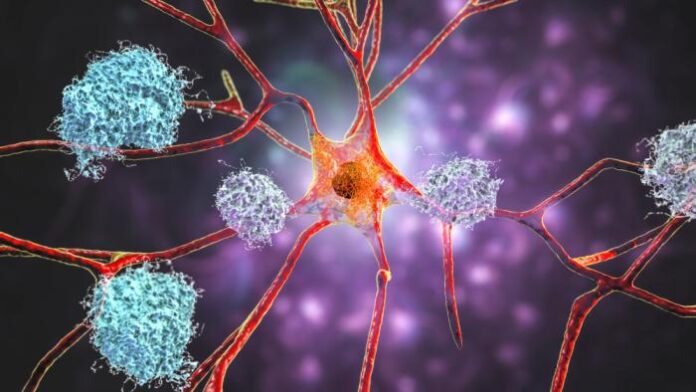The war against Alzheimer’s disease may have found an unexpected ally: lithium. Long associated with battery technology and psychiatric treatment, this modest metal is now being reconsidered as a possible disruptor in neurodegenerative research. A study published in Nature, led by Harvard Medical School, suggests a striking connection between lithium levels in the brain and the development of Alzheimer’s. Is this scientific noise or the quiet promise of a paradigm shift?
Lithium and Alzheimer’s: The Missing Mineral
Post-mortem analyses revealed a marked absence of lithium in brain regions ravaged by Alzheimer’s, compared to unaffected areas. This correlation led researchers to suspect a causative relationship rather than mere coincidence.
Their hypothesis? Amyloid plaques, the defining hallmark of Alzheimer’s, act like sponges for lithium ions. In mouse models, the more plaques observed, the less lithium remained available. This sets off a vicious cycle: diminished lithium levels fuel more plaques, which in turn deplete the mineral further. This degenerative spiral accelerates cognitive decline.
Critical Analysis: Hope, Hype, or the Edge of Something Real?
A Rediscovery Wrapped in Forgotten Science
The therapeutic use of lithium isn’t new. It has treated bipolar disorder since the 1970s. Before that, it featured as a supposed mood-booster in early versions of 7-Up. That lithium could affect cognitive health isn’t revolutionary, it’s rediscovered. What’s novel is the focus on ultra-low doses and alternative formulations like lithium orotate, which evade the trap set by amyloid plaques.
The Right Lithium Makes All the Difference
Prior trials used lithium carbonate, a compound easily neutralized by plaques. But the Harvard study opted for lithium orotate in trace doses, revealing recovery of memory function in mice. Strikingly, even cognitively healthy subjects with higher lithium levels performed better in memory tasks. This points to lithium as not only a therapy, but possibly a preventative agent.
A Pharmaceutical Problem: No Patent, No Profit
Here lies a geopolitical fault line between science and capitalism. Lithium, as a natural element, cannot be patented. Tomas Hajek from Dalhousie University bluntly states: “No company will profit from lithium itself.” This means large pharmaceutical companies have little incentive to fund further trials. The economic model is at odds with public health interest — unless firms can patent specific formulations or delivery systems, much like gel-based hand sanitizers during COVID-19.
Clinical Trials: 10 to 25 Years of Waiting
Despite the compelling data, we remain in the pre-clinical phase. Human trials will follow, if funded. Optimists speak of a 10 to 25-year horizon before a real treatment reaches patients. In Alzheimer’s terms, that’s an eternity. But in scientific terms, it is lightning-fast.
Beyond Alzheimer’s: Mental Health More Broadly
Lithium may offer benefits well beyond Alzheimer’s. The WHO estimates that one in six Europeans suffers from a mental disorder, many untreated. Could micro-dosing lithium form part of a broader neuroprotective strategy? Researchers suggest yes. The brain is, after all, precision machinery. “Our brain is Swiss watchmaking,” says CNRS neuroscientist Claire Rampon. “Every gear matters.”
Conclusion: The Elemental Gamble
The study opens a door to a radically simple hypothesis: perhaps what our brains need isn’t another biotech marvel, but an ancient element in its gentlest form. Yet this is precisely what makes the discovery vulnerable, it cannot be owned. The lithium hypothesis may either mark a turning point in Alzheimer’s treatment or be slowly buried under the weight of disinterest from capital and bureaucracy.
Lithium and Alzheimer’s: two familiar names, now bound by the possibility of renewal.



